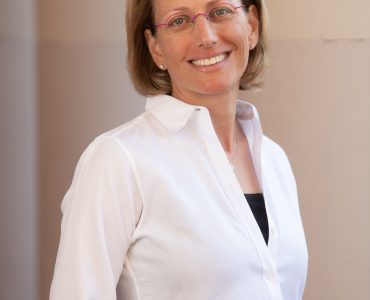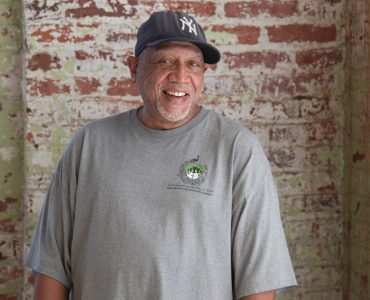In honor of the United Nations International Day of Women and Girls in Science on Feb. 11, the University of Maryland, Baltimore invited members of its community to share why they chose a career in a science, technology, engineering, and math (STEM) field. The International Day of Women and Girls aims to accelerate gender equity and improve access to and participation in science for women and girls.
School of Dentistry
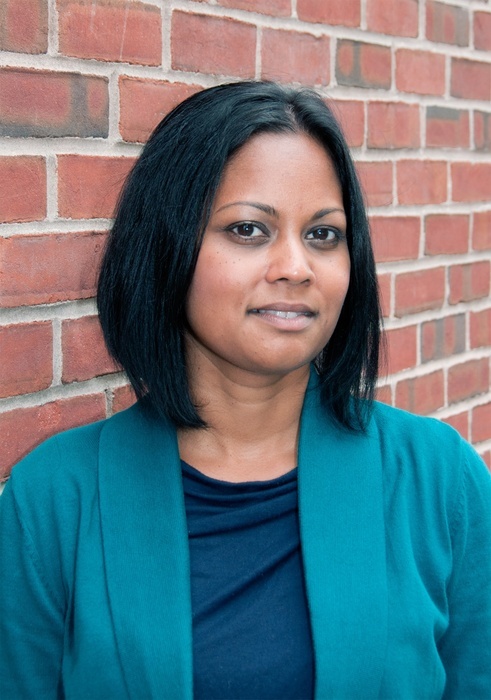
Donita Dyalram, DDS
Clinical Associate Professor, Oral and Maxillofacial Surgery (OMFS), and Program Director, OMFS Residency Program
I conduct clinical research in head and neck cancer and microvascular reconstruction. As far back as I can remember, I was always excited by the sciences — especially biology. I pursued biochemistry looking for answers and eventually research in protein folding. During this time, the field of dentistry was opened to me — this has led me on a journey that brought me to this point and is still continuing. I get to teach, train surgeons, and do research in a field that can save lives.
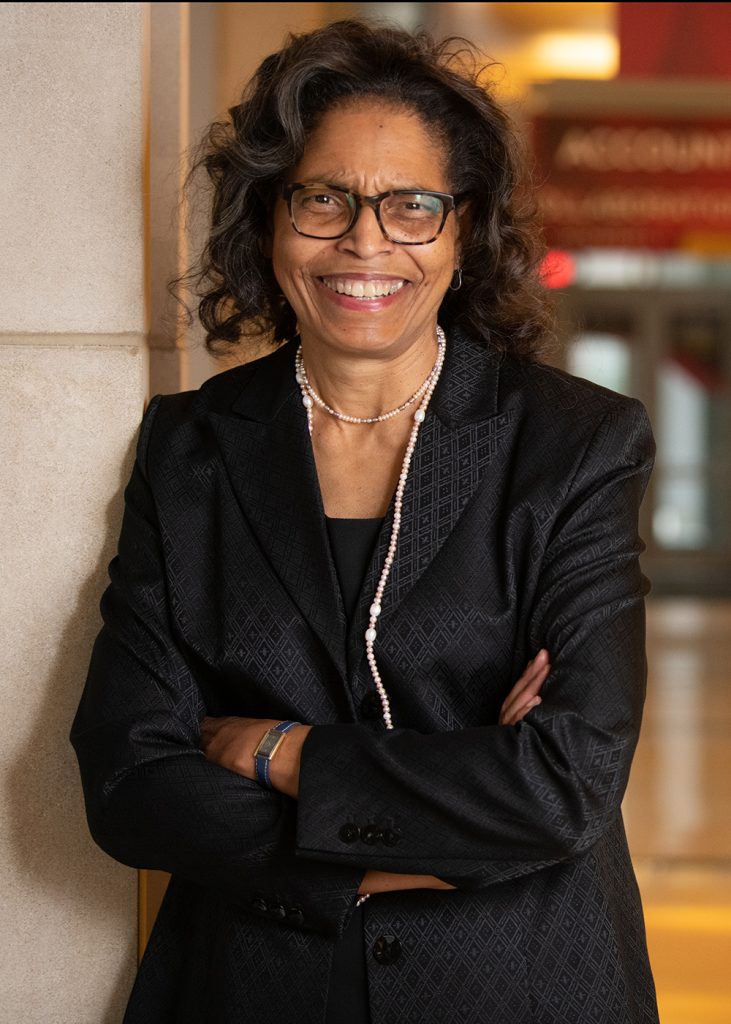
Valli Meeks, DDS, MS, RDH
Clinical Professor, Oncology and Diagnostic Sciences, and Director, PLUS Clinic
I am founder and director of the School of Dentistry’s PLUS Clinic, which focuses on treating people who are living with HIV disease and in need of oral health services.
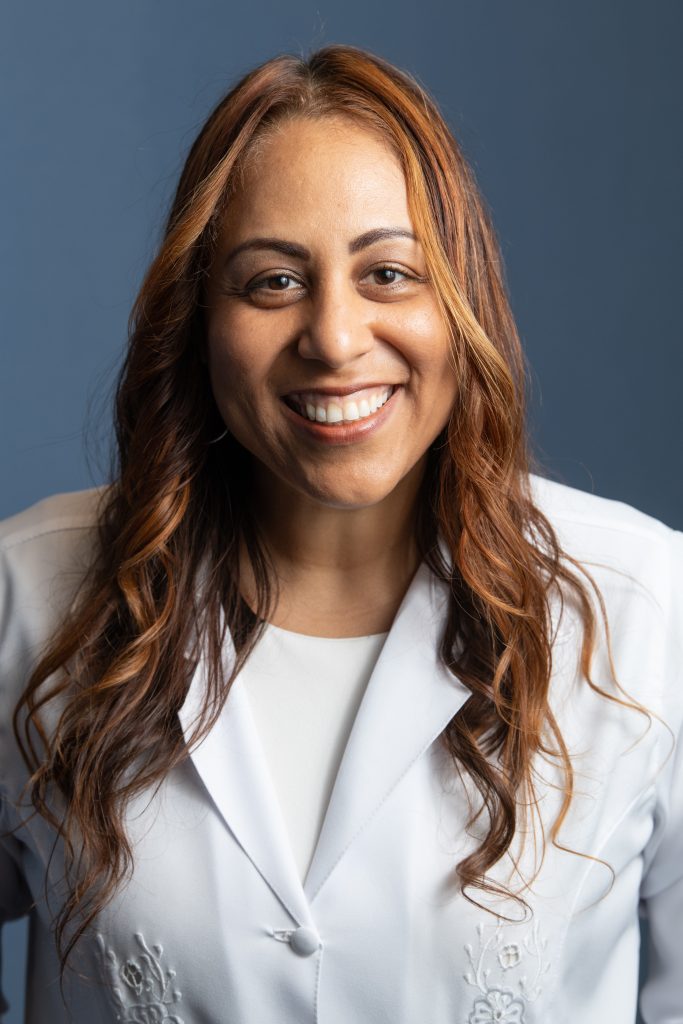
Isabel Rambob, DDS
Assistant Professor, Neural and Pain Sciences
When I was 16 years old, I volunteered in a nursing home in my hometown, Salvador, Brazil. I was assigned to spend some time with this lovely lady who was toothless. I asked her what would make her happy. Her answer literally changed my life. Her desire was to have dentures. I had not considered dentistry as a career up to that point. That experience inspired me to restore people’s smiles and improve their lives. Dentistry is an amazing career!
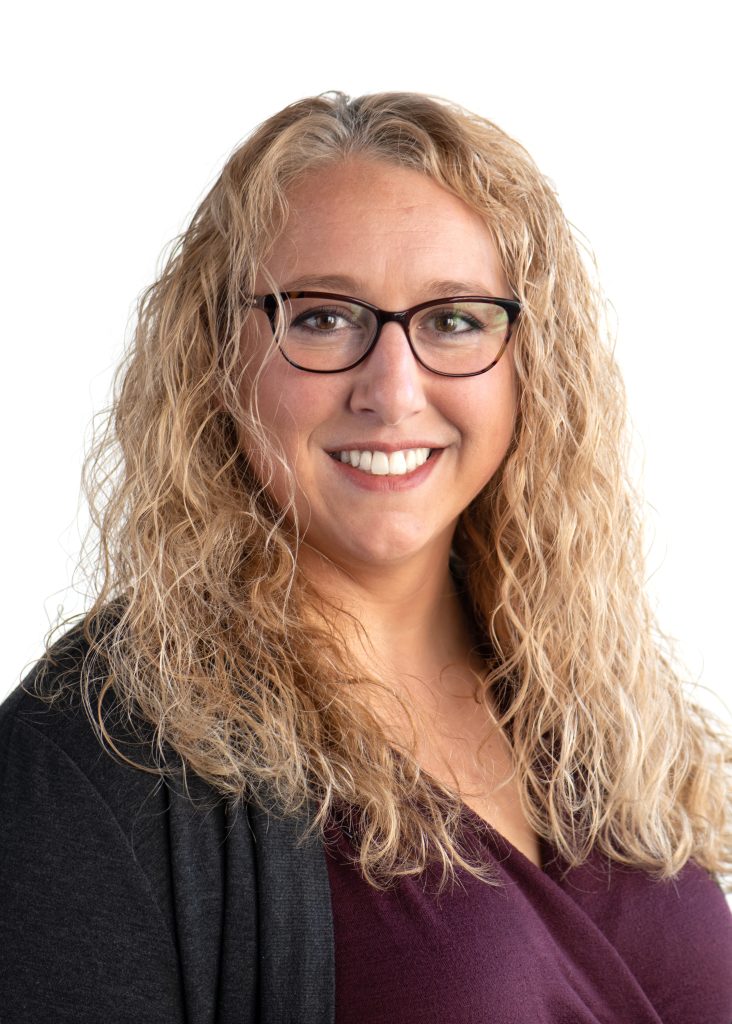
Alison Scott, PhD
Assistant Professor, Microbial Pathogenesis
My laboratory uses advanced spatial omics techniques to map lipids and metabolites aimed at finding new therapeutic targets for infectious diseases. Whenever possible, my laboratory supports research studies initiated in our dental clinics. Research is fun, challenging, and engages many different skill sets at the same time. I chose a career path in STEM because I knew I’d never be bored!
School of Medicine
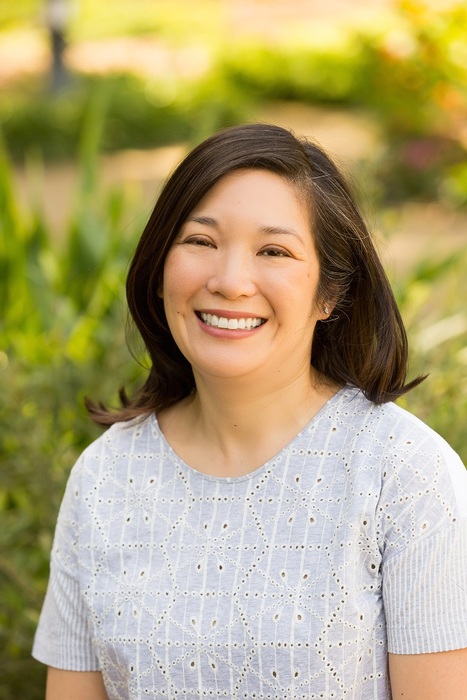
Andrea Berry, MD
Associate Professor, Pediatrics and Medicine
My work focuses on understanding antibody responses to malaria vaccines and malaria infections. The Plasmodium parasite is covered with proteins, most of which are uncharacterized. Through discovery of proteins that interact with the human immune system and elicit protective immune responses, I hope to inform vaccine development of next-generation malaria vaccines. I see patients at the University of Maryland Children’s Hospital on the inpatient pediatric infectious disease consult service. Science has always excited me. I enjoy thinking about complex systems and the interaction between humans and microorganisms. Every day, on many levels, I am solving problems and discovering new things. I also enjoy the challenge of communicating scientific discovery clearly and relevantly, so that others can be excited and care about important issues that affect them and others in the world.
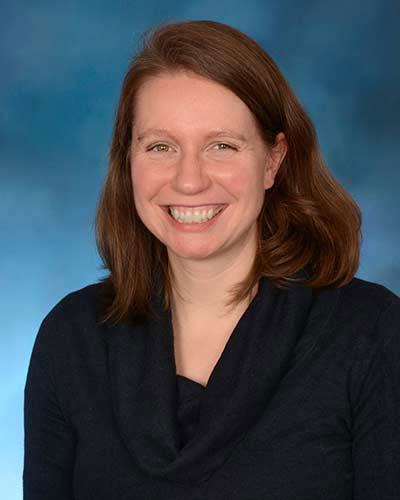
Meagan Fitzpatrick, PhD
Assistant Professor, Medicine
I love that I can do work in the field of infectious disease modeling and health economics that is both useful and interesting. The natural world has always been fascinating to me, especially evolution and species interactions but also human behavior. Infectious disease epidemiology sits right at the intersection of all these forces. I was also drawn specifically to epidemiology because of its foundations in health equity — to quote Virchow: “Medical statistics will be our standard of measurement: we will weigh life for life and see where the dead lie thicker.” Accurate measurement is critical when working toward a more just world.
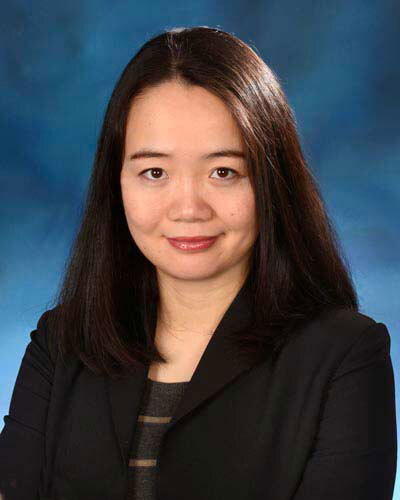
Bing Ma, PhD
Assistant Professor, Microbiology and Immunology
As a computational biologist, my research is at the forefront of the application of state-of-the-art ‘omics’ technologies to advance our understanding of the host-microbe ecosystem. My career goal is to facilitate adapting the rapid advancements of innovative sequencing technologies into translatable mechanistic knowledge toward actionable prevention, diagnosis, and therapeutics. Since graduate school, I have been embracing the fast-evolving sequencing technologies and big data as well as the revolutionized transformation they brought to the medical research landscape. I decided to dedicate my STEM skills to harnessing the power of big data in advancing medical research.
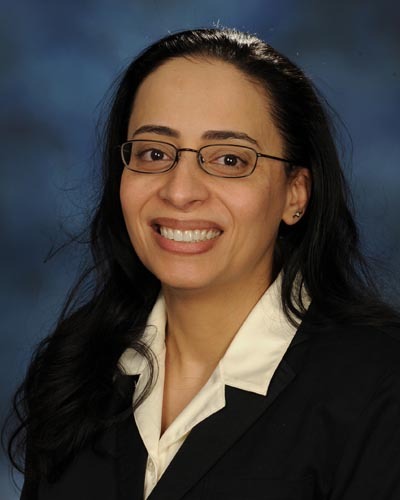
May Montasser, PhD
Assistant Professor, Medicine
I am a genetic epidemiologist; this is the field that searches for the genes that cause diseases. I am interested in identifying the genetic determinants of common diseases and traits like lipids, blood pressure, diabetes, aging, and drug response. I chose a STEM career because I love scientific research, it’s in my DNA. Scientific research is both intellectually and technically challenging and also always advancing, so I am learning every day and making novel discoveries that will improve human life. The best part of this career is that I do what I love to do. As a genetic epidemiologist, each one of my projects and papers is part of something larger called precision medicine, where disease prevention, early prediction, and custom treatment will be the norm one day. It is highly satisfying to know that I am contributing valuable knowledge to humanity that will outlive me.
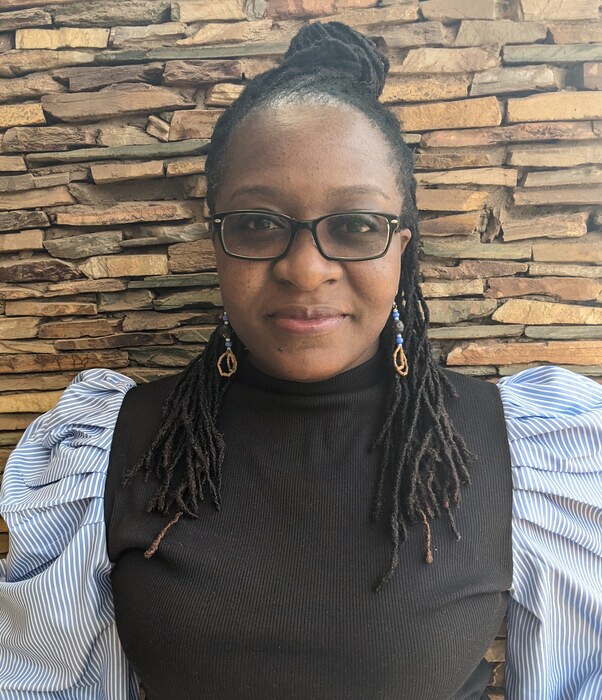
Nadia Sam-Agudu, MD
Associate Professor, Pediatrics, and International Technical Medical Advisor, Nigeria
My research focus is the application of implementation science methods in the prevention and treatment of major infectious diseases among children. To that end, I have designed and conducted studies in pediatric malaria, HIV, TB, and COVID-19 in African countries, chiefly Nigeria, Ghana, and Uganda. I am a pediatrician with specialization in infectious diseases, and I provide clinical consultations for children being evaluated or treated for these conditions. I have always liked science and math; these fields fed my intellectual curiosity and complemented my interest in creative writing and fine art. My choosing a STEM career (clinical medicine and scientific research) is rooted in my desire to provide better health prevention and treatment for children at risk of poor health due to limited evidence, limited access, and/or poor-quality health systems.
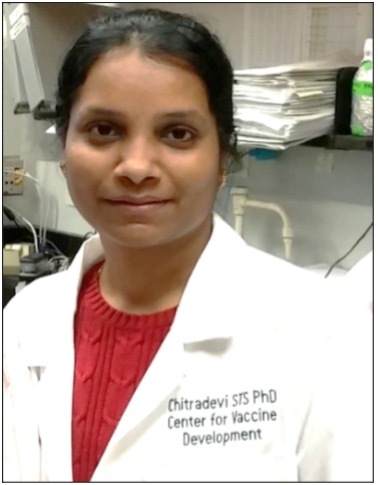
Chitradevi Sekar Tamilselvi, PhD
Postdoctoral Research Fellow
I love science. I chose my career as a researcher so that I can contribute to the betterment of human life.
School of Nursing
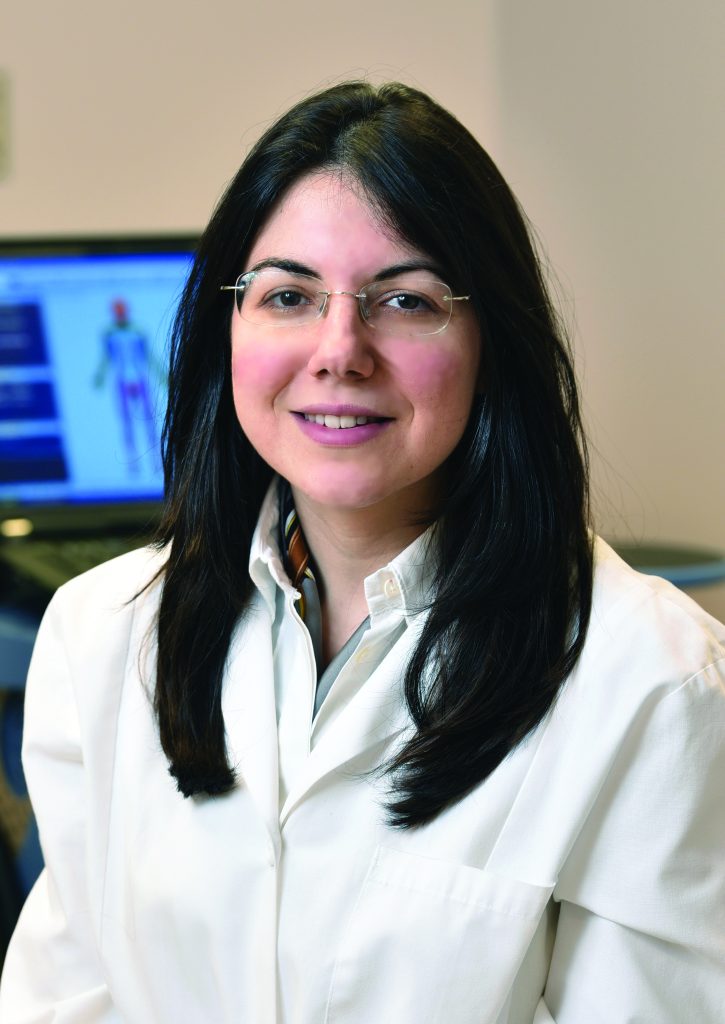
Luana Colloca, MD, PhD, MS
Professor, Pain and Translational Symptom Science, and MPower Professor
The opioid epidemic in the United States and worldwide compels us to discover novel mechanisms and therapeutic approaches to alleviate acute and chronic pain. A growing line of laboratory research has focused on the neurobiological mechanisms underlying placebo analgesia in both health and pain study participants affected by idiopathic and neuropathic pain, lower back pain, knee osteoarthritis, irritable bowel syndrome, and migraines. We investigate facial pain alone and in association with chronic overlapping pain disorders. Our research centers on the concept that the brain has the ability to modulate pain experience by releasing endogenous substances (e.g., endogenous opioids) and activating neural modulatory systems. In fact, placebo effects depend on the release of substances such as endogenous opioids, endocannabinoids, dopamine, oxytocin, and vasopressin in descending pain modulation systems. It is insightful and rewarding to do science that translates into helping people suffering from pain and other disorders. Growing up, I loved to learn and investigate, and science has been the ultimate place to apply my skills to medicine and related areas as a flexible nondogmatic or reductionist thinker and scientist.
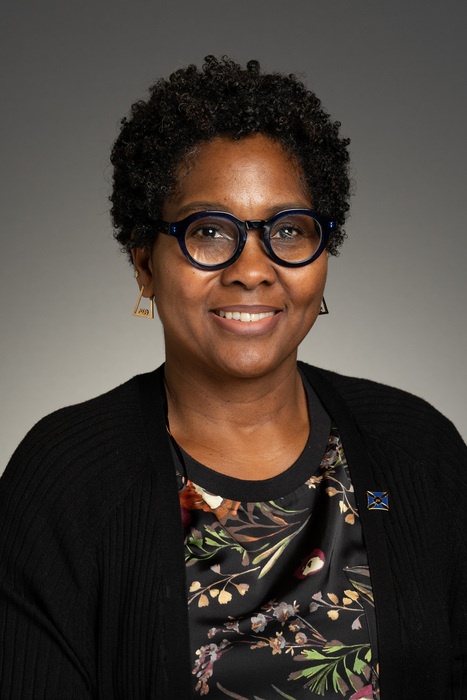
Kelley Robinson, PhD, MSN, CNM
Postdoctoral Fellow
My most recent research examined the role of housing instability as a social determinant of health on pregnancy morbidity. I study ways to improve women’s health equity and the well-being of gender-expansive people throughout their lifespans. I use community-based approaches and mixed methods to examine the effect of intersecting social constructs on physical health outcomes and to understand the barriers and facilitators in achieving quality care. I am a certified nurse midwife, serving females across the lifespan for almost 20 years. In this role, I see pregnant, postpartum, and gynecological patients in the office. I also support and manage laboring patients and facilitate infant delivery. My practice has included full-scope midwifery care in a variety of settings, including birthing centers, and I have extensive experience in maternal/newborn care under both normal and high-risk conditions. I maintain limited practice at Baltimore Washington Medical Center. While I have always had an interest in OBGYN, I believe the STEM career chose me. The combination of my interest in human physiology, passion for improving female health outcomes, and desire to advocate for those who are marginalized all have guided me to this place. Additionally, I enjoy working to solve problems, and research is one way to do that.
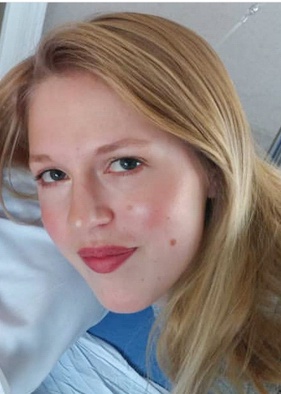
Amelia Wagenknecht
Clinical Research Specialist
My work involves conducting clinical trials related to exercise and nutrition interventions for patients with cancer undergoing chemotherapy. In February 2018, my dad was diagnosed with Cholangiocarcinoma, a rare cancer that forms in the bile ducts. He passed away four months later. His diagnosis and medical journey inspired me to pursue a STEM field in cancer research because I saw how instrumental clinical research is in creating the next generations of medicine and treatment methods for families like mine.
School of Pharmacy
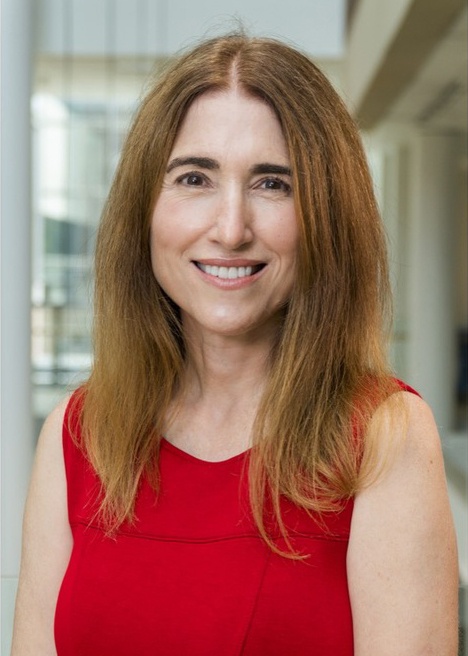
Sarah Michel, PhD
Chair and Professor of Pharmaceutical Sciences and Associate Dean for Graduate Programs (Interim Dean, School of Pharmacy, beginning June 1, 2023)
My laboratory studies the roles of metals in biology. Our bodies require metals such as iron and zinc to function, but the roles of these metals aren’t fully understood. My research uses biochemistry and cell biology techniques coupled with bioanalytical methods to understand how these metals function. Our research has the potential to inform on inflammation and cancer and lead to new therapies. When I took my first chemistry course in college, I was fascinated by how simple chemical principles can explain how the natural world works. I then had the opportunity to conduct undergraduate research in the field of bioinorganic chemistry, which combines inorganic chemistry (chemistry of metals) with biology, and I was hooked. I went on to get a PhD and start my own lab at Maryland where I train and mentor graduate students in cutting-edge research that has the potential to improve human health.
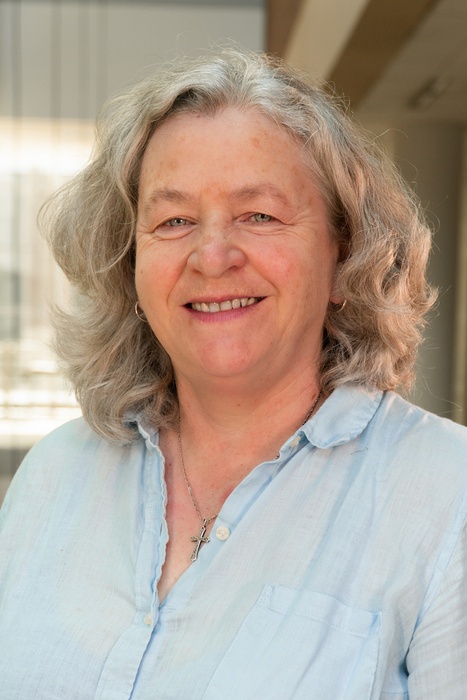
Angela Wilks, PhD
Isaac E. Emerson Chair of Pharmaceutical Sciences
I study how bacterial pathogens acquire essential micronutrients such as iron and how this affects pathogenesis and virulence so that we can design new antibiotics. I was always fascinated by the diversity of nature and how this came about. This led me to combine my two favorite science subjects in school — biology and chemistry — to study biochemistry. Biochemistry brings everything down to the molecular level of understanding that still fascinates me.


